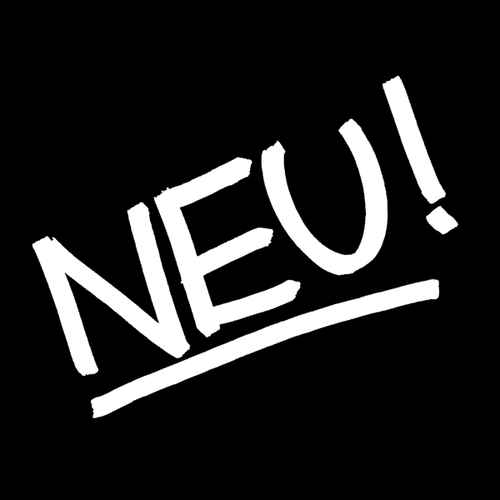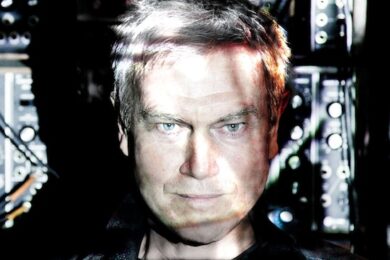10. Neu!Neu! ‘75

Before punk, music in Britain was looking a bit daft – we’d forgotten all about the promise of proper psychedelia and somehow allowed prog to make wizards on ice and acrobatic grand pianos seem significant.
God it was depressing. Rock bands as boozy, laddish jokers. There were more than enough of those stuffed into any pub, anywhere. Jolly red-faced pillocks to be avoided at all costs. Only glam seemed exciting and raw, but still a little too Blackpool Las Vegas.
Then I heard this album by an unknown band (and from Germany of all places). It cleared the air of dry ice in a single, rough blast of fresh thinking.
This band took The Velvets’ urban outlaw stance, ‘Tomorrow Never Knows’ drone experimentalism, mixed in distorted, minimal rock, plus a new flavour of European classicism, to create what was recognizable even then as the template for a new kind of rock music for the future. The spirit of New York and London had unexpectedly emigrated to Germany and mutated into something potentially glorious.
From the end of the 1960s to the mid 70s Phaedra emerged, Can, Kraftwerk, Cluster, Harmonia and Popol Vuh appeared – and Neu! appeared – a musical differences split from early Kraftwerk. It was an entirely new mode – a welcome new world of adventurous, intelligent music. Through these bands and others, there was a fascinating continuity – a translation of the best music of the 1960s into a suitable future mode.
This process had been energised by necessity. German youth was undertaking an essential, revolutionary reassessment and reconstruction of its entire cultural base. There was a monumental job to be done in remaking a national and international identity that acknowledged the previous generation’s propagation of the worst European horrors of the 20th-century. Painters, filmmakers, industrialists, politicians, architects and musicians all rallied, recognising the essential task. The shared impetus of guilt, reparation and a universal desire to make a clear separation from its recent past, began to make Germany an international cultural force to be reckoned with.
In this storm of new energies Neu! fashioned a template for the music of the next fifty years. ‘Isi’ is the track – archetypal, blind adventure and longing translated into highway music – the autobahn as a romantic journey through the suburbs of the soul. Drone music again, archaic ultra-modernism combined with delicious hints of European classical tradition. Another track, ‘Hero’, prefigures Stranglers-era punk – the title and spirit of it all was also adopted by Bowie, some years later, and he asked the marvellous Michael Rother to play on it. (Rother declined).
Conny Plank, the producer genius of 20th-century German music, recorded these albums. He was the crossroads where Germany intersected the rest of the world. He was the human instrument that made all these recordings possible and gave everyone from Kraftwerk to Neu! the confidence, abilities and facilities to make them. He created a safe place where artists could explore, take chances and test the limits while he patiently recorded and sifted the results, thereby making some of the 20th-century’s most vivid and seminal music.
Neu! created a template for 21st-century musicians that is only rivaled by the Velvets. In fact, it provides a modernized, more efficient and relevant euro-model than the Velvets could from their distance across the Atlantic. It served the first version of Ultravox, Simple Minds, Joy Division, Radiohead and still continues to do so for The Horrors and many others, as the shape of modern, forward-looking, adventurous art-rockers and psychedelicists.


